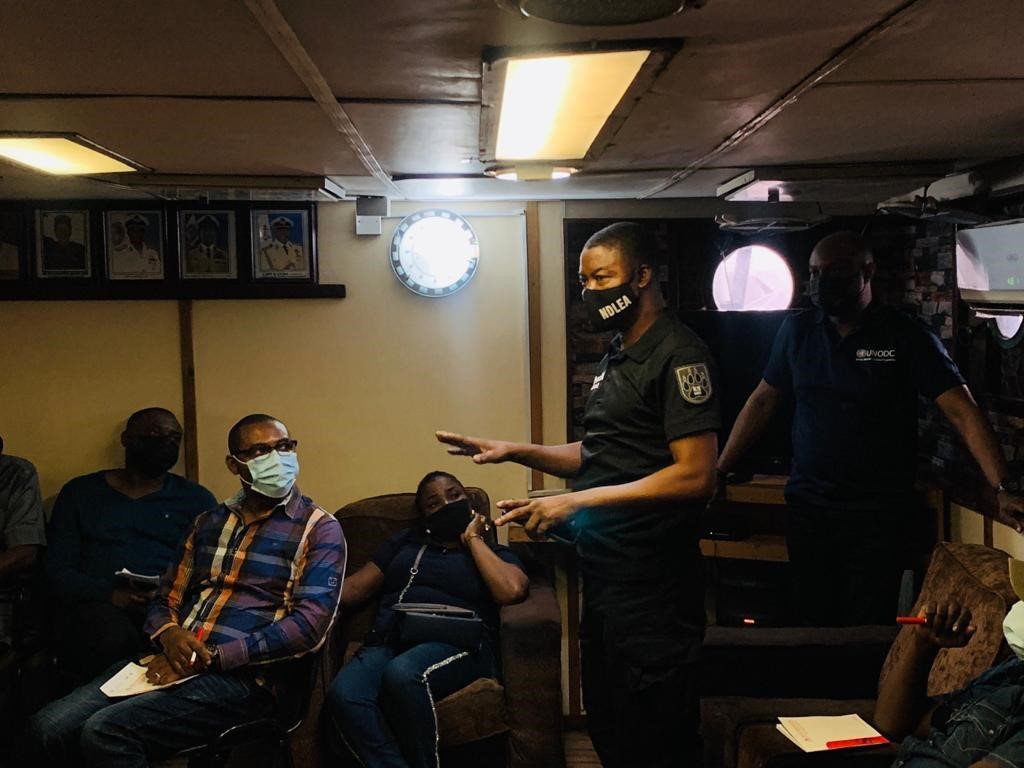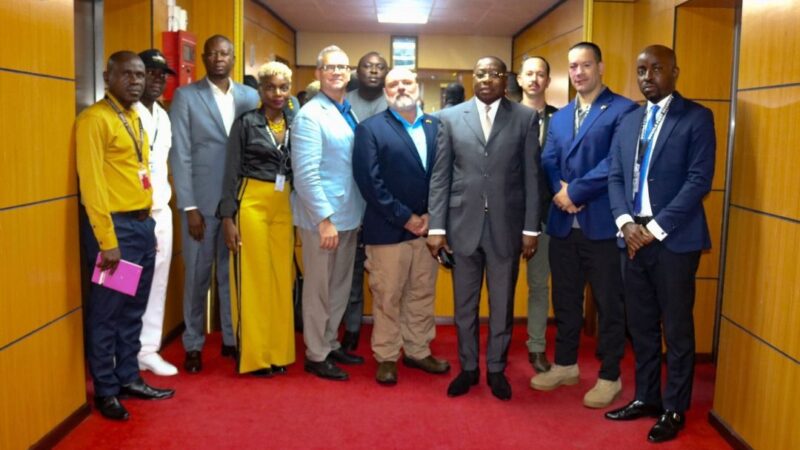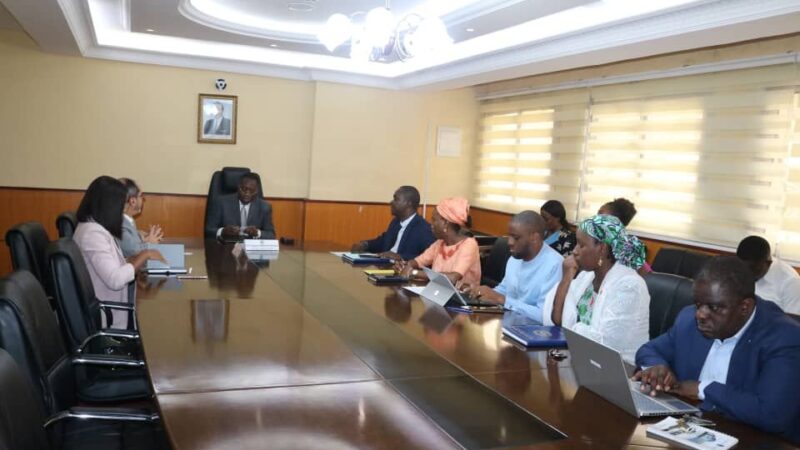UNODC Organizes Table Top Exercise on Evidence for Harmonized Standard Operating Procedures Focal Persons from Nigerian Maritime Law Enforcement Agencies

The Gulf of Guinea remains at the global epicenter of piracy and other maritime incidents accounting for nearly half (43%) of all reported piracy incidents in the first three months of 2021, according to the latest figures from the ICC International Maritime Bureau (IMB). Whilst there have been recent legal reforms in several countries in the region introducing new legislation to tackle the phenomenon, they are yet to be translated into successful prosecutions. One important contributing factor to the challenges faced by countries to mount successful prosecutions stems from the inadequate procedures for collection and handover of evidence related to criminal activities at sea.
When recognized and effectively handled, physical evidence offers the best probative value and facts upon which to establish the occurrence of an incident during an investigation. However, the value of even the most carefully recovered evidence can be lost if the chain of custody is not properly maintained or broken. It is for this reason that chain-of-custody remains one of the most critical aspects of criminal investigation as it gives the chronological sequence and documentation of evidence from start to finish to establish its connection to an alleged crime.
In order to strengthen Nigeria’s maritime law enforcement response to piracy and other maritime crime, the United Nations Office on Drugs and Crime (UNODC), with support from the European Union and Government of Denmark, held a three (3) day Table-top exercise on evidence collection, handling and chain of custody from 17-19 March 2021 in conjunction with the OBANGAME Express 2021 – the largest recurrent Naval exercise in the Gulf of Guinea organized by the US Naval Forces Africa with the participation of 32 nations and two regional bodies, namely ECOWAS and ECCAS.
The workshop aimed to exercise the Harmonized Standard Operating Procedures on Arrest, Detention and Prosecution of Vessels and Persons in Nigeria’s maritime environment (HSOP). Participants included representatives of 17 maritime law enforcement agencies with the primary aim of providing a platform for the HSOP focal persons to further strengthen inter-agency collaboration on evidence collection through various Table-top exercises conducted based on scenarios developed for the OBANGAME Express 2021 covering piracy, drug trafficking and fisheries crime.
Part of the exercise was conducted onboard the Nigerian Navy Flagship NNS PROSPERITY at the Western Naval Command, Apapa, where UNODC, in collaboration with the Nigerian Navy and the National Drug Law Enforcement Agency (NDLEA), carried out a drug search and seizure simulation exercise using dogs from the NDLEA canine unit to demonstrate methods of concealment of drugs onboard ships and the dynamics of drug detection and seizure at sea.
Another highlight was the conduct of a mock crime scene investigation (CSI) exercise on a piracy scenario, organized by INTERPOL onboard the Navy Flagship, where the focal persons witnessed the collection of evidence on board the vessel, handling and chain of custody. The evidence collected during the CSI was thereafter preserved and would be tested for admissibility at a simulated mock trial to be held in Nigeria by UNODC in collaboration with INTERPOL.
The UNODC Table-top Exercise, amongst others, provided the focal persons with:
- technical and operational knowledge of elements of maritime crimes and the skills to collect evidence which meets the required threshold to secure maritime criminal convictions;
- increased understanding of the needs and benefits of inter-agency coordination and cooperation to investigate and prosecute maritime crime cases; and
- more accurate and nuanced understanding of the difficulties and particularities of investigating incidents and collecting evidence in the maritime environment
UNODC looks forward to continuing its work with the Nigerian maritime law enforcement agencies and all other stakeholders including through its Global Maritime Crime Programme (GMCP) to strengthen the criminal justice response to piracy and other maritime crimes, particularly by strengthening the evidence chain and technical skills of the justice sector practitioners.
Source : UNODC



